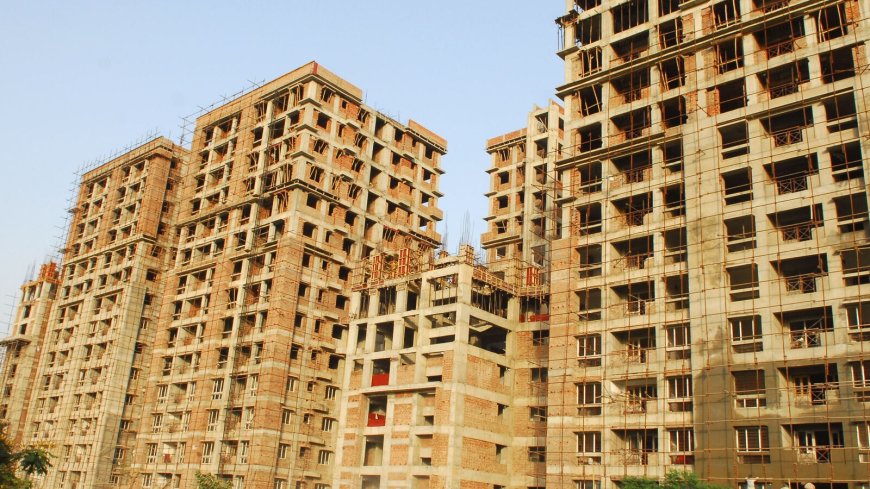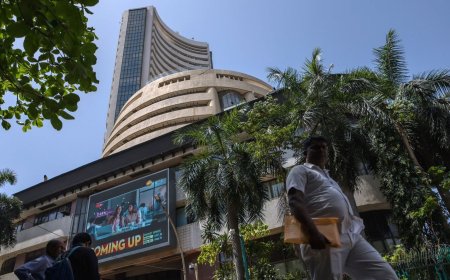NBCC Share Price Surges 7% After Q4 Results and Dividend Announcement
NBCC shares jumped 7% following strong Q4 results and a ₹0.60 final dividend. Read key highlights, analyst views, and investor outlook on NBCC stock.

NBCC Share Price Rises 7% Post Q4 Results, Dividend Announcement: Do You Own It?
New Delhi, May 30, 2025 — Shares of NBCC (India) Ltd surged over 7% on Friday after the state-owned construction and project management company reported robust Q4 results and announced a final dividend, sparking renewed interest among investors.
Solid Q4 Performance Boosts Market Sentiment
NBCC reported a net profit of ₹135.32 crore for the quarter ended March 2025, marking a significant year-on-year increase of 28.5% from ₹105.27 crore in the corresponding quarter last year. Revenue from operations also rose by 22.7% to ₹2,021 crore, up from ₹1,647 crore in Q4FY24.
The strong quarterly performance was underpinned by improved execution in project management consultancy (PMC), which continues to be NBCC’s core strength. The company also reported healthy margins in its real estate and engineering, procurement, and construction (EPC) divisions.
"NBCC has benefited from accelerated execution in government-backed redevelopment projects. The order book visibility and execution pipeline suggest strong momentum into FY26," said Ritika Sinha, Senior Analyst at Axis Securities.
Dividend Announcement Sweetens the Deal
In addition to its strong earnings, NBCC declared a final dividend of ₹0.60 per equity share for FY25. This comes on top of an interim dividend of ₹0.47 already paid earlier in the year, taking the total dividend payout to ₹1.07 per share.
The dividend announcement has buoyed investor sentiment, as it signals management's confidence in the company’s financial position and future growth trajectory.
Stock Reaction and Market Context
Following the results, NBCC shares opened gap-up at ₹92.30 on the NSE and rallied to an intraday high of ₹96.50, a gain of over 7%, before settling slightly lower at ₹95.10 by the close. Trading volume also saw a substantial uptick, with over 4.2 million shares changing hands, significantly above the daily average.
NBCC’s year-to-date (YTD) return now stands at over 42%, outperforming the Nifty 500 index, which has risen around 14% in the same period. The company’s market capitalization has crossed the ₹17,000 crore mark.
Growth Drivers and Order Book Strength
NBCC currently boasts an order book exceeding ₹55,000 crore, comprising high-profile projects like the redevelopment of government colonies in Delhi, smart city projects, and several infrastructure developments across ministries and PSUs.
“The company’s strong execution track record in government projects provides a significant edge over private players. NBCC’s asset-light model and rising contribution from PMC ensure sustainable margins,” noted Anuj Bansal, infrastructure sector lead at ICICI Direct.
The government's continued thrust on urban renewal, infrastructure modernization, and housing for all provides a long-term growth platform for NBCC, which acts as a nodal agency for many such initiatives.
Investor Outlook: Is NBCC a Buy?
Given the company’s consistent performance, strong order pipeline, and dividend-paying ability, market experts are cautiously optimistic.
Valuation-wise, NBCC trades at around 28x FY25 earnings, which some analysts believe is justified given its zero-debt status, high RoE (~18%), and robust order book.
"For long-term investors looking for a blend of stability and moderate growth in the infra sector, NBCC is worth considering. However, the current upmove may see short-term consolidation," said Mihir Desai, fund manager at Taurus Mutual Fund.
Retail investors are advised to watch for further developments, including Q1FY26 order inflows and progress in flagship projects like Netaji Nagar and Sarojini Nagar redevelopment.
Risks to Consider
Despite the positive outlook, NBCC faces certain risks, including execution delays, bureaucratic bottlenecks, and dependence on government contracts, which could make its earnings volatile in election cycles or policy changes.
Any slowdown in public infrastructure spending or regulatory hurdles could impact the timely delivery of large projects.
What's Your Reaction?
 Like
0
Like
0
 Dislike
0
Dislike
0
 Love
0
Love
0
 Funny
0
Funny
0
 Angry
0
Angry
0
 Sad
0
Sad
0
 Wow
0
Wow
0












































































